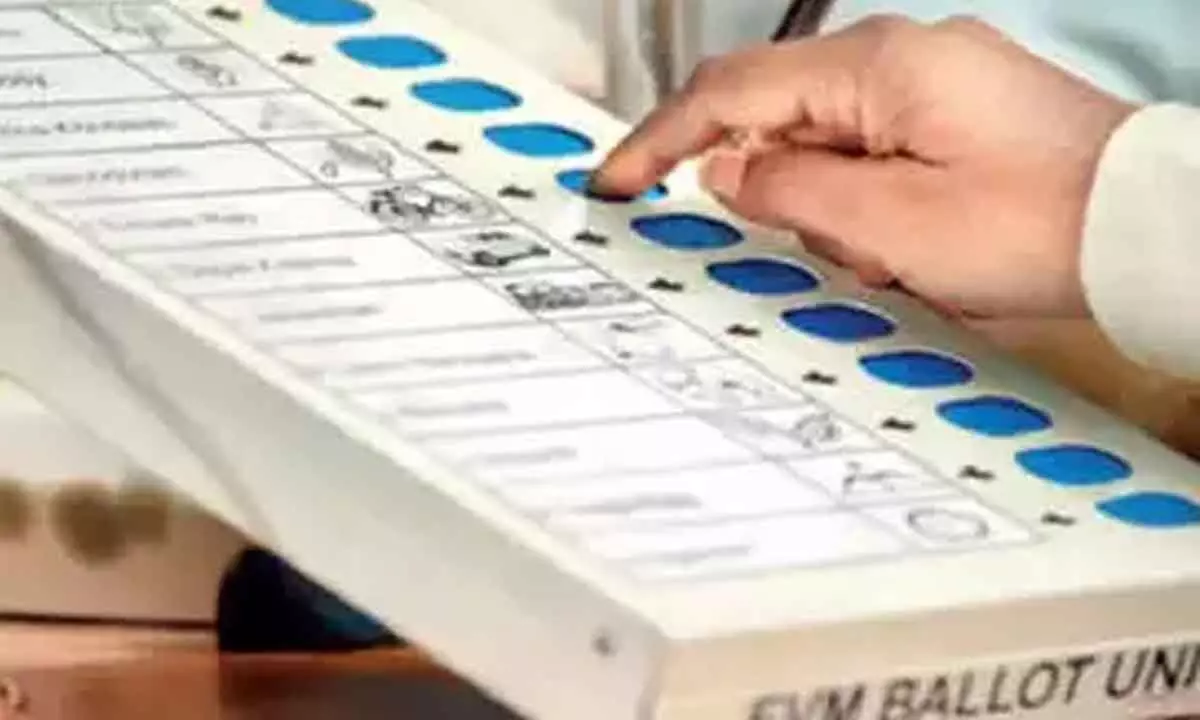MLC poll results flag public disquiet in AP

The political scenario of Andhra Pradesh reflects a certain ground reality that is not palatable to the ruling party. The Chief Minister Y S Jagan Mohan Reddy, does not accept it or even realise it. As he is of a blemishless character and is beyond reproach, the blame for every failure and ill (of the governance) should be borne by someone else. So is the case when the party loses some elections, too, before the next year's general elections. Why is it so? Are the voters sending the ruling party a clear signal that they are not too happy with its governance?
The YSRCP might claim that it is only a miniscule of the voters, that too some from the educated sections who voted against the government in in the recently held council elections. It can also be content with casting aspersions on the four MLAs who purportedly voted for the Opposition candidate in the MLA quota in the Council elections. But why is there such a huge discontent among the educated voters in the State? What made them perceive that a vote for the Opposition would be better than preferring the ruling party candidates? Has the Opposition successfully sold its argument on the failures of the ruling party?
India's democracy has repeatedly proven that the so-called uneducated rural voter delivers a better judgment always when it comes to his voting preferences. He votes and then waits for five years, all the while evaluating the performance of the ruling party silently and comparing his agenda with that of the political parties.
Why does Jagan feel that his welfare schemes will see him sail comfortably to the winning post in the next elections too? He, perhaps, has forgotten that in a democracy, policy output is expected to reflect the popular will and policies should react to changing demands. If policies are unable to respond to the shifts in voter preferences or if policies are not responsive to new challenges, democracy is in trouble.
When democracy faces trouble it certainly places the government in trouble. When there is a huge gap in the political agenda and the societal agenda, it leads to further friction. Three questions become important in these circumstances: To what extent do party preferences change over time, are there any differences between parties in the way they adapt to the changing demands and what determines these changing pattern differences? When it is difficult to find answers to these questions, it only means that the incumbency comes under question. Andhra Pradesh is currently witnessing the outcome of such policies that have distanced from societal realities. This does not augur well for the ruling party aiming to score a perfect 10 i.e., 175 out of 175 in the Assembly elections next.
Compared to AP, politics of UP pale into insignificance as far as the bulldozer politics are concerned. Every opponent and every political rival faces a bulldozer in AP. These are not just 'avenged' by the ruling party leaders in every sense but cases are filed against them aplenty. The police hounds them mercilessly and picks them up at odd hours. The rubble of democratic practices can be seen strewn across the streets everywhere. There is a parallel governance by the party in the name of delivering benefits to the people without answerability through the Village Secretariats. Questionable means lead to accumulation of dissatisfaction. And in five years, it becomes insurmountable for anyone to overcome.














